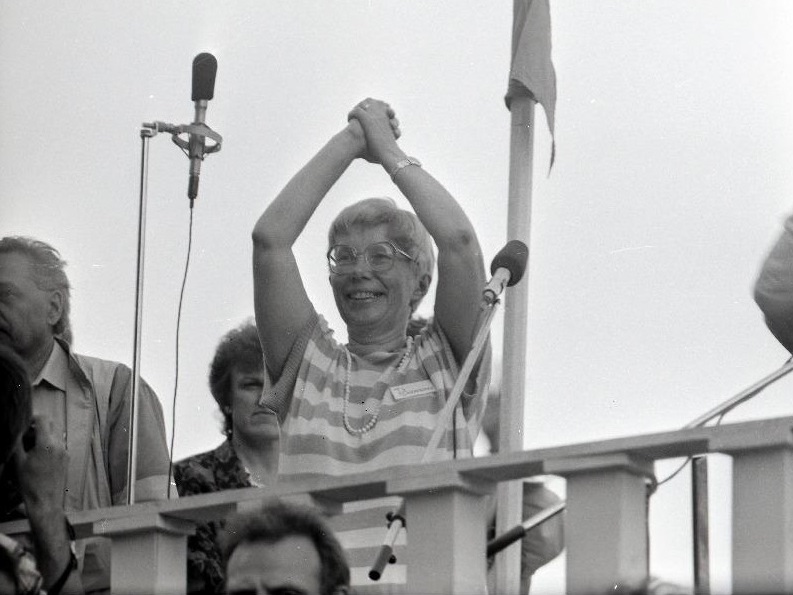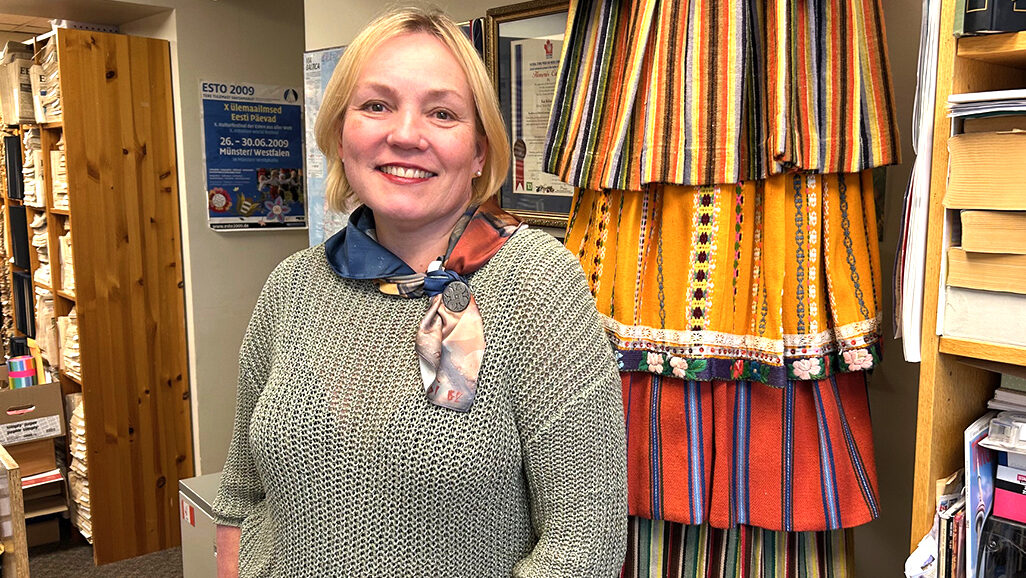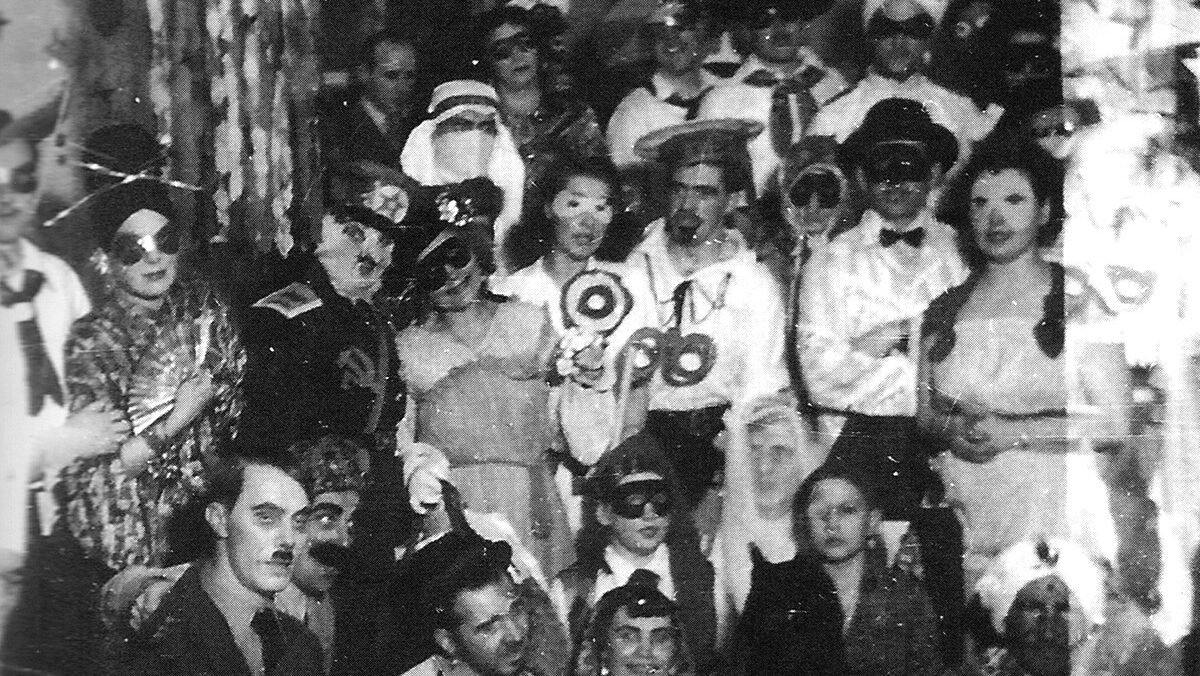In 2015, Estonian World declared her the number one most outstanding Estonian woman in the world. Eesti Päevaleht named her as part of the 10 most influential families in Estonia. In a recent interview, I asked why her perspectives on politics and sociology strike a chord for many Estonians today.
Immediately, she spoke of the steadiness of her views on democracy. “Maybe they trust that I am genuine in my views, that I'm not pursuing any kind of political interest or self interest.” To counteract what she determines to be self interest, Professor Lauristin often emphasizes “evidence-based decisions” in politics.
This stems from her long career in academia. Professor Lauristin teaches Social Communication at the University of Tartu, and has been a professor in the Faculty of Social Sciences for 18 years. Her foundation in this field was built when, in 1966, she completed her degree in Journalism and Sociology of Mass Communication at what was Tartu State University. Despite the way social sciences were viewed with suspicion by the communist establishment, she found ways to conduct research and pursue her field of study. This culminated in her obtaining a PhD in Journalism at Moscow University in 1976.
Her deviation from what was deemed acceptable extended to political activism. A big part of her notoriety comes from the fact that she and other activists initiated and organized the Rahvarinne (Popular Front of Estonia) in 1988, which led the Estonian independence movement.
Professor Lauristin grew up in an environment that was unlikely to raise an independence activist. Her mother and father, Olga and Johannes Lauristin, were prominent communists in Estonia. But in 1980, Marju Lauristin signed the neljakümne kiri (“Letter of 40”). This letter was put together by 40 intellectuals with the intent to protest Russification in Estonia and the handling of the riots that followed the Propeller concert at Kadriorg Stadium that September.
In August 1989, as a member of the Rahvarinne‘s managing committee, she was involved in organizing the Baltic Way, an enormous human chain on the roads from Tallinn to Riga, demanding freedom for the Estonian, Latvian, and Lithuanian people. In hindsight, she declares “It had to become, and really became, an international media event…We wanted to show that we were three nations who were very capable of high-level self organization and self discipline… [and that] we had the real unanimous will to have back our statehood and sovereignty and to have real historic justice done.”
As a member of the Baltic delegation, she visited the U.S. Congress in May 1990, at a time when those pushing for independence were still advised to act with caution by politicians and commentators. In Washington, there was a hearing in the United States Senate Committee on Foreign Relations concerning the Baltic independence movements. At the same time, the New York Times published a column that cautioned the Baltic nations against rocking the boat, so to speak. Despite this tension, leaders of Estonian, Lithuanian, and Latvian popular fronts were determined to convince US senators and the international political community to support Baltic independence vis-a-vis Moscow's denial of this legitimate claim.
On August 20th, 1991, she was vice-speaker of the Supreme Council of the Republic of Estonia, which formally voted to restore the independence of Estonia.
Between 1992 and 1994, she was the Minister of Social Affairs during Mart Laar's first term as Prime Minister. Until 2003, she was a member of the Riigikogu as part of the Moderate People's Party, what is now the Social Democratic Party. And throughout her time in politics, her ties to academia didn't diminish. In 2003, she returned to the University of Tartu, where she was invited to become a full professor.
However, despite increased stability in Estonia, challenges remained after independence was achieved. Namely, one common Estonian goal had divided into many. And so, she continued to be an active figure and opinion leader in Estonian politics.
According to Professor Lauristin, it's taken three decades for Estonia to adjust to the change. With the ongoing pandemic crisis and emergency situation rules, she says that Estonians have acted decisively when there is the potential that democratic freedoms might be limited. But at the same time, she believes that reacting against emergency rules is “something very weird because people here understand the need for rational behaviour, not emotional mobilization.” To this end, she has overseen Human Development Reports as an editor in Estonia for many years. These reports are intended to be information for anyone to read and consider.
Between 2014 and 2017, Professor Lauristin sought to bring knowledge and practical ideas to the European Parliament as a member of parliament and a rapporteur of e-privacy regulation. For all those advancing this regulation, it was determined that “…it's human freedom and rights that we should protect, not data alone.” Along these lines, there is the potential of sensitive personal data being used to discriminate against people or to manipulate their behaviour.
With the upcoming Canadian-Estonian audience in mind, she looked back in time again and voiced how “In the fight for Estonian freedom, the role of diaspora communities… was really decisive. For example, when we were fighting for the disclosure of the secret protocols of the Hitler-Stalin Pact, and the Soviets said that it didn't exist… we were able to get, due to the help of Estonians working in the library of the U.S. Congress, the copies of original documents.”
On a cultural level, she speaks warmly of the lifelines that stretched between Estonia and Estonians abroad from the 1960s onward: “When Estonia was occupied in the 40s, Soviet officials wanted to extinguish all memories of the pre-war culture… The community abroad really preserved cultural life very much… People got Estonian books from Sweden or America in parcels and letters and so on… When I was a student we could read those books shared by those who had received them from relatives abroad. Culturally, it was like a pair of external lungs when we couldn't breathe freely in the old country.”
Speaking with Professor Lauristin clarifies how much the pursuit of freedom and justice has grown in complexity since Estonia re-gained independence 30 years ago. Attendees at the VEMU fundraiser will receive much food for thought.
Written by Vincent Teetsov, Toronto




